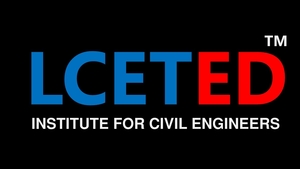Post Top Ad
Aug 26, 2020

Types Of Electrical Conduit And Its Purposes - LCETED
WHAT IS
ELECTRICAL CONDUIT?
An
electrical conduit is a pipe used to secure and supply electrical wiring in a
building or structure. Conduit is usually supplied in place of hidden and open
wiring or damage. An electrical conduit is usually made of metal, plastic or
fiber. They can also be classified based on the thickness of the wall. Via options
depend on their type of application, application, national electrical code
(NEC) etc.
Electrical conduit mainly
classified into two types which are listed below
1. Metallic Conduit
2. Non-Metallic Conduit (Mostly PVC
Conduit)
We
will elaborate these two types below
1. METALLIC CONDUIT
Metallic
conduit made from a metal material. There are several types of metal conduit
which is listed below
a.
Rigid Metal Conduit
(RMC)
b.
Intermediate metal
conduit (IMC)
c.
Flexible Metal
Conduit (FMC)
d.
Liquid-Tight Council
(LTC)
e.
Electrical Metal
tubing (EMC)
f.
Electrical Non-Metal
tubing (ENMC)
Rigid Metal
Conduit (RMC)
What is Rigid Metal Conduit (RMC)?
Rigid
Metal Conduit (RMC) is a thick-heavy walled threaded pipe that is often made of
coated steel, galvanized steel or aluminum. This type metal pipe usually
provides reliable protection from external damage and can also provide
structural support for electrical cables, panels and other devices.
Used
In: Typical Used Outdoors
Intermediate
Metal Conduit (IMC)
What is Intermediate Metal Conduit (IMC)?
It
is a thin and light version of the RMC. this is a heavy steel, designed for
external exposure and solid connect. and It is designed to protect insulated electrical
conductors and cables. IMC is approved for use in all applications compared to RMC.
Today IMC is more commonly used in new construction because intermediate metal
pipes (IMC) are lighter and easier than RMC
Used
In: New outdoors construction projects
Flexible Metal
Conduit (FMC)
What is Flexible Metal Conduit (FMC)?
It has a spiral structure
that simplifies the flow through walls and other structures. Flexible metal
hoses are easy to bend without using other electrical equipment or elbows and
threaded seals. it is very easy to install. Flexible metal pipes (FMC) are
useful in areas where rigid channels are difficult to install. Standard FMC is
used in dry indoor areas.
This is ideal for vibration
equipment such as heating and air conditioning units
Used
In: dry indoor locations
Liquid-Tight
Flexible Metal Conduit (LFMC)
What is Liquid-Tight Flexible Metal Conduit
(LFMC)?
Its
is like a flexible metal pipe (FMC). LFMC is a flexible metal pipe covered with
waterproof plastic coating. LFMC is extra flexible, which is commonly used in
outdoor equipment such as air conditioner units. It provides mechanical and moisture
protection for electrical wire.
Used In: Outdoor equipment
Electrical
Metal Tube (EMT)
What is Electrician Metal Tube (EMT)?
Its
another example of rigid electrical pipes, its usually made of galvanized steel
(GMT) or aluminium. The Electric Metal Tube (EMT) is Light then RMC. Installing
EMT is also easy.
Its
available in sizes like 1/2 inch (12.7mm), 3/4 inch (19.05mm) and 1 inch
(25.4mm).
Used
In: Exposed
Indoor wiring
Electrical
Non-Metal Tube (ENMT)
Its
another example of rigid electrical pipes, its usually made of PVC
Used
In: Indoor
walls
2. Non-Metallic Conduit
What is Non-Metallic Conduit?
The
non-metallic Conduit (NMC) is can be rigid and flexible type. Non-metallic Conduit
are generally made from PVC. The same fittings are often used for metallic and
non-metallic routes. Advantages of non-metallic conduits are moisture
resistance, corrosion resistance and ease of installation.
Used In: Corrosive Environments
HOPE YOU LIKE THIS ARTICLE SUBSCRIBE US OR CLICK THE BELL ICON FOR INSTANT NOTIFICATION
Subscribe to:
Post Comments (Atom)
LCETED - "WHATSAPP GROUP"
For Instant updates Join our Whatsapp Group. Save our Whatsapp contact +919840140396 as LCETED and Send us a message “JOIN”
Post Bottom Ad
Author Details
WE CREATED THIS CHANNEL FOR CIVIL ENGINEERS WANT TO KNOW ABOUT CONSTRUCTION WORK AND INTERIOR WORK








No comments:
Post a Comment